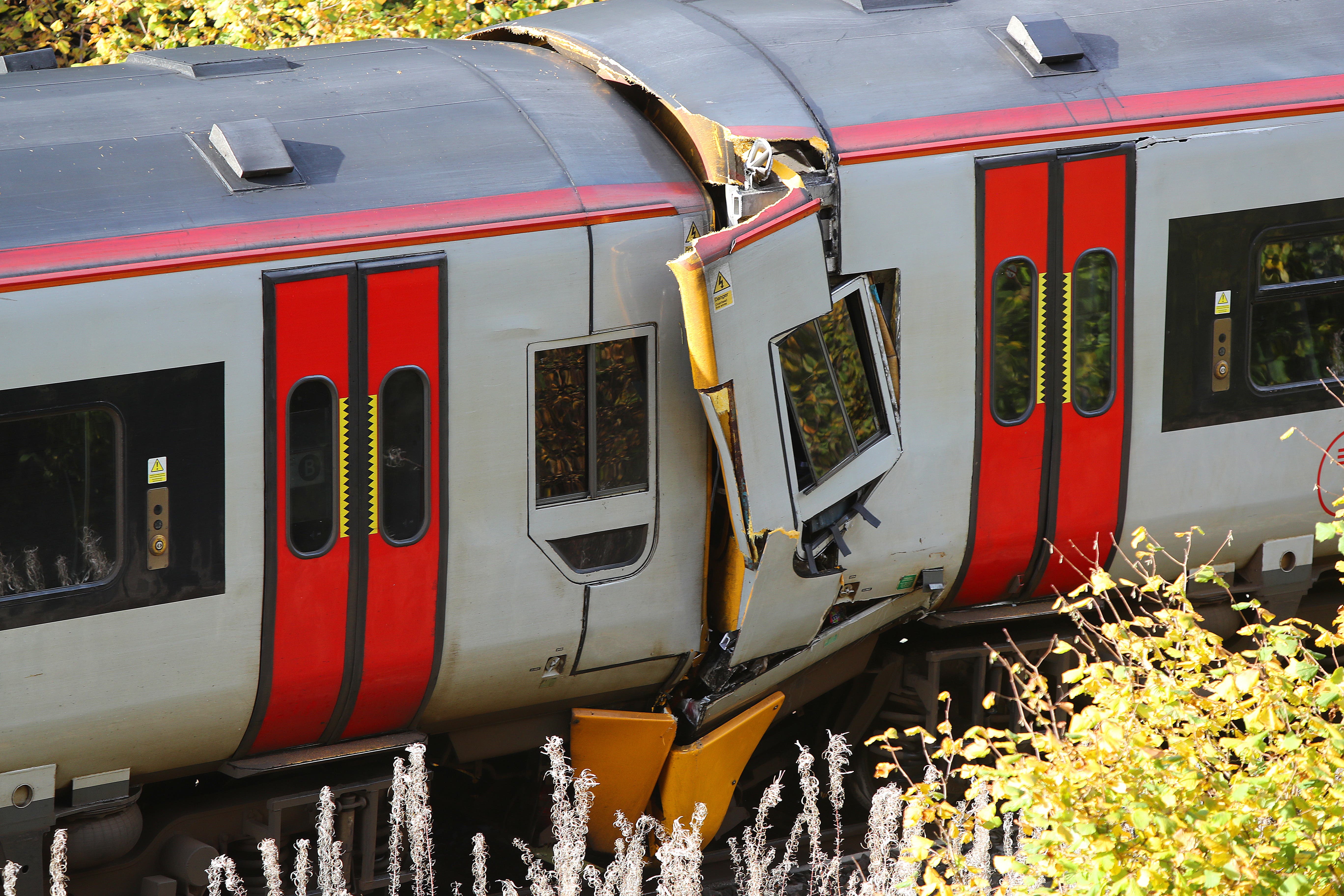Fatal crash train operator runs services at lower speeds over ‘slippery rails’
Two Transport for Wales trains collided head-on near Talerddig in Powys at 7.26pm on Monday night.

A train operator involved in a fatal crash suspected to have been caused by slippery rails is running services at reduced speed on Wednesday because of the same issue.
Two Transport for Wales (TfW) trains collided head-on near Talerddig in Powys at 7.26pm on Monday night, resulting in the death of a male passenger in his 60s from a suspected heart attack.
Four other people suffered serious injuries, and a further 11 sustained injuries requiring hospital treatment.
The Rail Accident Investigation Branch (RAIB) said the condition of the track on the approach to the collision point meant “adhesion” between wheels and rails was “relatively low”.
It said this suggested an Aberystwyth-bound train may have slid while braking, causing it to crash at a speed of around 15mph into a stationary train destined for Shrewsbury.
TfW said on Wednesday its services were running at a reduced speed across large parts of its network “due to slippery rails”.
Routes affected include between Wrexham General and Bidston, between Swansea and Shrewsbury, between Llandudno Junction and Blaenau Ffestiniog, between Tenby and Pembroke Dock, between Holyhead and Llandudno Junction, and between Frodsham and Chester.
On Wednesday evening, Network Rail and Transport for Wales said the Cambrian line between Machynlleth and Shrewsbury would remain closed until at least the end of Friday.
They said a “recovery operation” would take place to remove the crashed trains over the coming days, adding that a replacement bus operation would remain in place on the route.
Monday’s crash happened on the Cambrian line in a rural location with a single track, close to a passing loop where trains travelling in opposite directions can pass each other.
Network Rail said one of its railhead treatment trains – which tackle autumn leaf fall – ran along the line where the crash occurred and the passing loop on Sunday night.
An internal log of what happened during the crash shows the driver of the train for Aberystwyth reported they entered the loop as planned but were “unable to stop due to the railhead conditions”, causing the train to pass a stop signal.
A signaller instructed the oncoming train to perform an “immediate stop”, but a collision could not be avoided.
A conductor on the train that slid sustained a “bang to the head” and “possible broken arm”, while the driver of the other train suffered “bleeding” and was initially trapped in their cab because it was damaged.
The RAIB said it will publish a further update on its investigation “in the coming days” once it has gathered and analysed more evidence.
Leaves cause major disruption every autumn when they stick to damp rails and become compressed by train wheels.
This creates a smooth, slippery layer similar to black ice on roads, reducing trains’ grip.
Speed restrictions are often imposed in an attempt to reduce accidents such as the crash between two trains outside a tunnel near Salisbury, Wiltshire, in October 2021 which left 13 passengers and one driver requiring hospital treatment.
A South Western Railway train slipped on crushed leaves, causing it to slide past a stop signal and smash into the side of a Great Western Railway service.
It is understood Network Rail has not made any immediate changes to how it deals with leaves on the line following the mid Wales crash, and will await the outcome of the RAIB’s investigation and any recommendations included in it.
The RAIB has not issued an urgent safety announcement, which it does when it believes rapid action is needed following an incident.
Bookmark popover
Removed from bookmarks